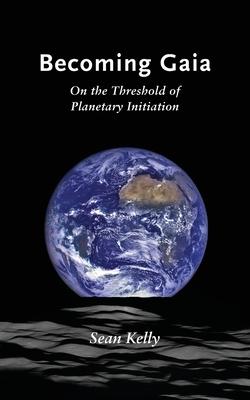We are living in end times. With climate chaos, an accelerating mass extinction, and signs of civilizational collapse, the Earth community is being drawn into a planetary near-death experience (NDE). These end times, however, also mark the threshold of new planetary identity in the making. Drawing on an impressive range of scholarship from such fields as Big history, comparative religion, transpersonal psychology, and integral philosophies, Sean Kelly reveals the features of this new identity and invites us to consciously participate in its making. Guided by the ideal of Gaia as "concrete universal," Kelly offers compelling insights on the nature of an emerging world spirituality that some describe as a second Axial Age; on the elements of a complex-integral ethics for the Planetary Era; and on the role of the death/rebirth archetype for understanding the charged field of contemporary climate activism. The book culminates with an inspiring meditation on the possibility, in these end times, of a third way beyond both hope and despair. In contrast to the restrictive anthropocentrism and technocentrism of mainstream discourse around the Anthropocene, Kelly speaks instead of the Gaianthropocene as our new geological epoch. It is an epoch where, even and especially as we face the fires of planetary initiation, we can awaken to our deeper nature as living members of Gaia, the living Earth in and through whom we have our being.

Becoming Gaia: On the Threshold of Planetary Initiation
We are living in end times. With climate chaos, an accelerating mass extinction, and signs of civilizational collapse, the Earth community is being drawn into a planetary near-death experience (NDE). These end times, however, also mark the threshold of new planetary identity in the making. Drawing on an impressive range of scholarship from such fields as Big history, comparative religion, transpersonal psychology, and integral philosophies, Sean Kelly reveals the features of this new identity and invites us to consciously participate in its making. Guided by the ideal of Gaia as "concrete universal," Kelly offers compelling insights on the nature of an emerging world spirituality that some describe as a second Axial Age; on the elements of a complex-integral ethics for the Planetary Era; and on the role of the death/rebirth archetype for understanding the charged field of contemporary climate activism. The book culminates with an inspiring meditation on the possibility, in these end times, of a third way beyond both hope and despair. In contrast to the restrictive anthropocentrism and technocentrism of mainstream discourse around the Anthropocene, Kelly speaks instead of the Gaianthropocene as our new geological epoch. It is an epoch where, even and especially as we face the fires of planetary initiation, we can awaken to our deeper nature as living members of Gaia, the living Earth in and through whom we have our being.